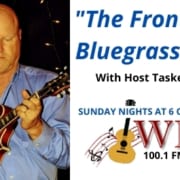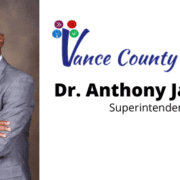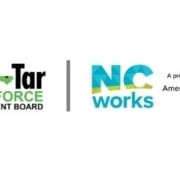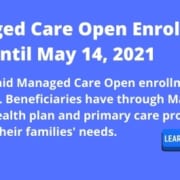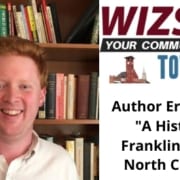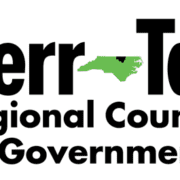TownTalk 04-21-21 Tasker Fleming, Front Porch Bluegrass
Tune in to WIZS on Sunday, May 2 at 6 p.m. to set your toes to tappin’ as the radio station airs a new program called “Front Porch Bluegrass” hosted by Tasker Fleming. Fleming grew up in the area and spent part of his career in education right here in Vance County.
Fleming sat down – virtually – with Town Talk’s John C. Rose Wednesday and talked about growing up in Vance and Warren counties and how music has been a part of his life over the years.
He spent 36 years teaching math and coaching sports and recently retired in the Albemarle area. He started Front Porch Bluegrass, an hour-long show that airs on his local station WSPC AM 1010 and FM 107.3.
“I just like the story as much as the fast pickin’ ” of bluegrass, he said. This particular genre of music started out as Everyman’s music, he noted, and said he likes to think that his efforts are a way to help preserve the music as well as entertain listeners.
“I invite people to tell me what they like,” he said. Send requests to frontporch21@yahoo.com.
Listeners will hear a mixture of very new music, with additional timeless classics and even some vintage tunes from the ‘40’s and ‘50’s.
Fleming’s interest in bluegrass and other forms of music goes back to his childhood. He ordered his first instrument – a banjo – from the J.C. Penney catalog after attending the Earl Scruggs Revue in Afton, NC.
“I’ve never made a penny with music,” he said, “but I was hooked.”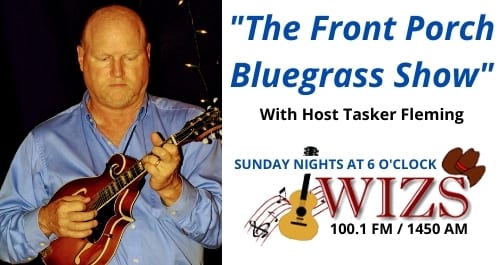
He picked up the mandolin more recently and, until COVID-19, played with a group of local musicians who entertained at nursing homes near his home. The residents enjoyed the visits from Mountain Creek Connection, listening to familiar bluegrass and gospel favorites. And Fleming enjoyed watching them sing along.
Fleming recalled fondly evenings at Marie’s in the Epsom community – a service station-turned-music venue where locals gathered on to listen and play on Thursday, Friday and Saturday evenings. “I grew up there, listening to the music,” he said. “It’s a lot of fun being around the music.”
Fleming’s father turned the old theater in Warrenton into a civic auditorium and gospel groups would play there on Sunday afternoons. Fleming ran the concessions for these events and recalled one time when Bill Monroe and the Bluegrass Boys were scheduled to perform. But Monroe ended up in the hospital in Nashville. Mac Wiseman filled in and did well, Fleming said, adding that he even brought the singer a meal of a burger and fries from the locally famous Burger Barn.
“I was his leg man to get him lunch or dinner – he was just a nice guy,” Fleming said.
Learn more about Front Porch Bluegrass at frontporchbluegrass.com or follow on Facebook.
TownTalk Broadcast Audio with Tasker Fleming, the full and entertaining half hour!

